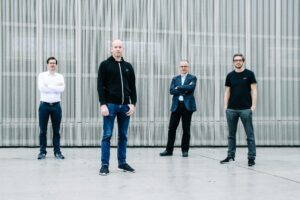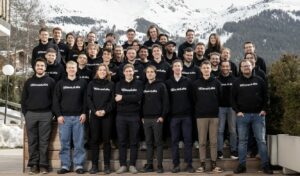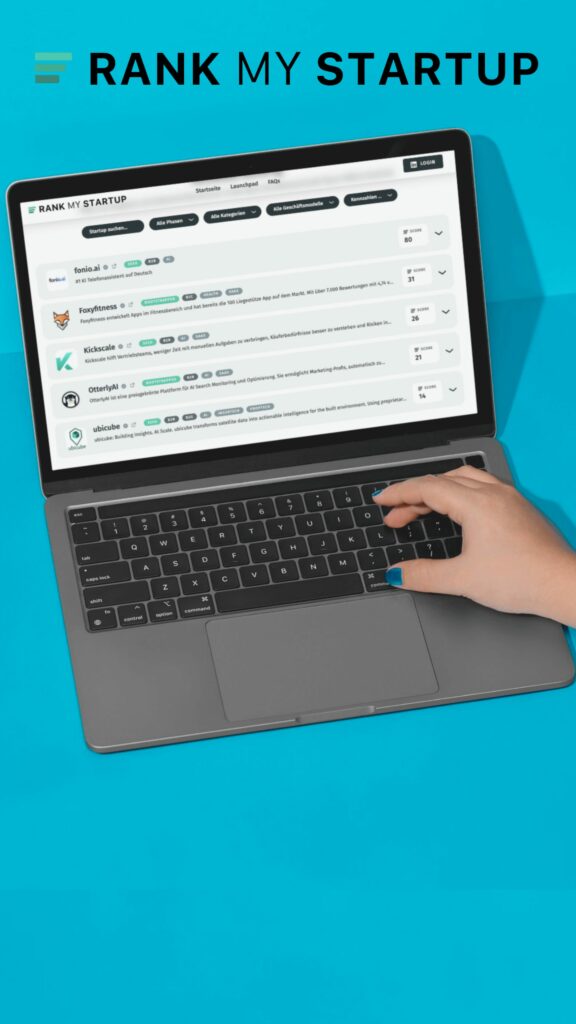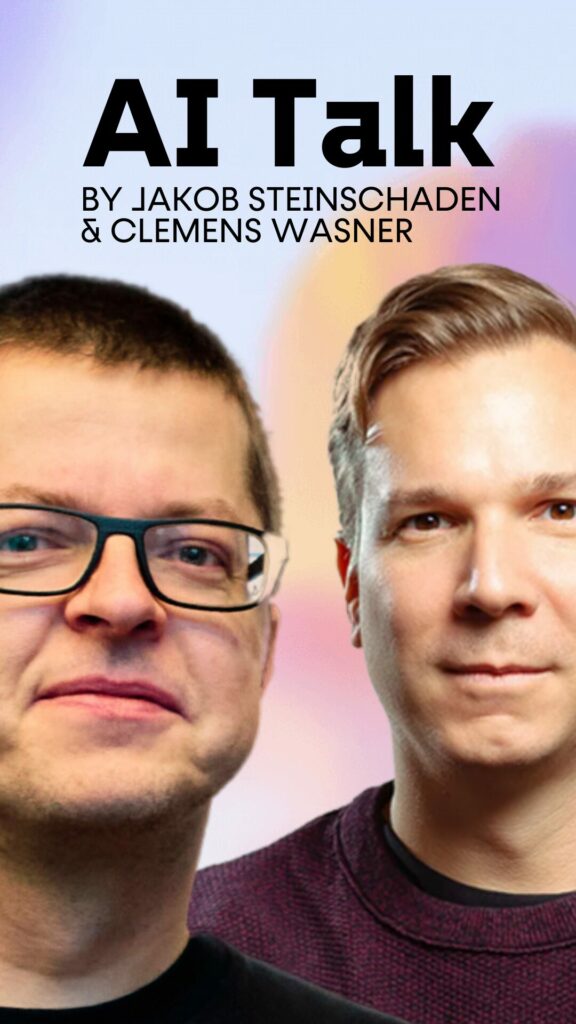„Poor AI integration costs money“: Notion’s Mick Hodgins talks AI Agents, Competition & Winning in EMEA
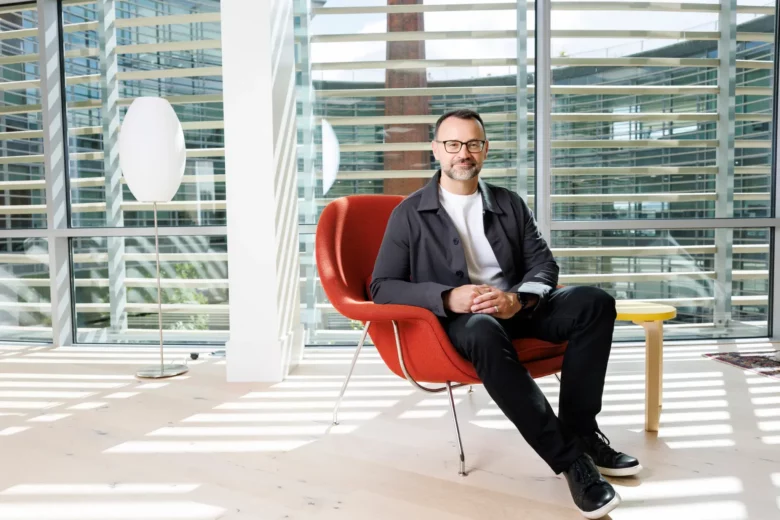
It went largely unnoticed at the time, but it was actually the workspace start-up Notion that launched AI integration in November 2022, around the same time as OpenAI launched ChatGPT.
Now they really want to know: on Thursday evening, Notion, which has 100 million users worldwide, announced the launch of its AI agents. These are designed to act like team colleagues directly within the software and take on complete tasks.
Notion is also stepping on the gas in other areas. With three new offices in Europe and a data residency at Amazon Web Services, Mick Hodgins, General Manager EMEA at Notion, is now focused on winning over Europe. As Hodgins, who previously worked for many years at Google in the advertising business, says:
„If you don’t win EMEA, you can’t be truly global. If you don’t win DACH, you can’t be truly EMEA.“
TrendingTopics: Let’s start with a broad question: Where does Notion stand in 2025, and how does it compare to five years ago?
Mick Hodgins: That’s a great question, and even for someone who’s been with the business for about eight weeks, it’s an interesting one to tackle. Notion has been on this incredible evolution. Notion 1.0 was very much individuals or companies using Notion Docs for basic tasks. Notion 2.0 moved from docs to databases. Now Notion 3.0 is about not having to do the work yourself – you can start using agents to do the work for you.
The company has grown to nearly a thousand employees with over 100 million users. In EMEA specifically, we have tens of millions of users, which is driving us to expand our presence across the region. We’ve launched three new hubs: one in Max Vorstadt in Munich, we just opened an office in Paris, and we have an office in London’s Soho. When you combine this with our data residency initiatives, EMEA growth, and internationalization strategy, it’s really exciting.
While Notion has always been international with over 80% of customers outside the US, we’re now doubling down on that international footprint. The biggest changes are our AI momentum, international expansion, and the growth story we’re telling to shareholders and investors.
You spent many years at Google in advertising. What made you switch to a company that has nothing to do with advertising?
I’m a learner first and foremost, and a builder. I had 13 incredible years at Google where I learned about cross-cultural leadership, technology, sales, taking products to market, and innovation. I wanted change – to get back to building something from the ground up.
Notion ticked many boxes for me. First, it’s a great company that’s responsibly managed and well-run. Second, it has a phenomenal culture that reminds me of Google’s earlier days – brilliant products, great community, smart people who want to experiment, with strong builder and problem-solving DNA. Third, the growth opportunity with AI in the collaboration and productivity software space is off the charts. McKinsey estimates the European market at $200 billion, Gartner says $80 billion – whatever it is, it’s a big number. Working with an ambitious company that can capture a slice of that was too good to pass up.
You mentioned 80% of customers are outside the US. Why focus on Europe rather than Southeast Asia or Latin America?
We are actually doubling down in multiple regions – we have offices in Korea, Tokyo, and Australia. But why Europe now? The European tech ecosystem has given us phenomenal penetration, particularly with the startup community in the DACH region. We work with customers like Parloa, TaxFix, and Ecosio, and 95% of German unicorns use Notion.
We’re also making headway with enterprise customers – 80% of DAX 40 companies use Notion. We have big customers helping us understand how to help them consolidate tools and minimize tech sprawl. Simply put: if you don’t win EMEA, you can’t be truly global. If you don’t win DACH, you can’t be truly EMEA. Now is the right time to open offices to get closer to customers and partners.
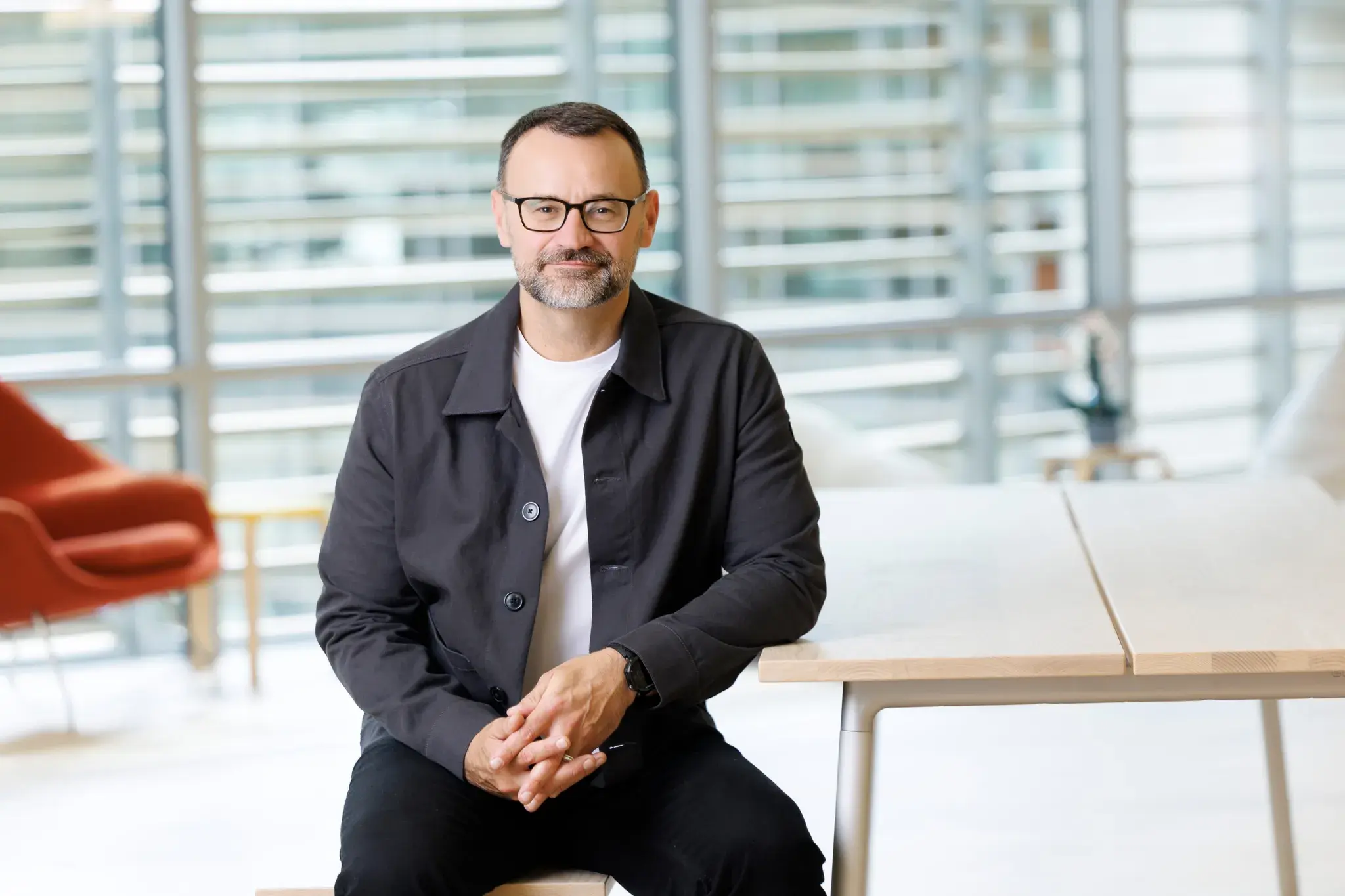
Notion dominates the startup space, but enterprise customers are often locked into Microsoft or Google ecosystems. How do you win them over?
We’re on this journey and building knowledge as we go. Every company, regardless of size, has this proliferation of tools – incredible tech sprawl. Notion is uniquely positioned for knowledge workers, particularly with AI, to be that central repository and platform of choice for large enterprises.
We’re seeing this with companies like Swiss Marketplace Group in DACH and Transporeon. There are huge opportunities for customers to use Notion AI and drive productivity efficiencies in an environment where we bring them the best of multiple LLMs and the best context within connected workspaces. We’re excited about the customers coming into our pipeline.
Notion is launching AI agents. What can they do compared to other AI agent platforms?
You need to understand Notion’s AI journey first. We were early to generative AI – Notion AI launched in private alpha in November 2022, around the same time as ChatGPT-3. We’ve been rapidly iterating, with capabilities ranging from content generation to information retrieval, enterprise search, meeting notes, and deep research.
We recognized early that AI was a natural progression for our platform of Lego blocks and workflow automation. Teams are ready for AI that actually completes tasks. The MIT State of Gen AI and Business Report shows 95% of AI projects deliver no financial gain – poor AI integration costs money.
Notion agents are personalized AI teammates that sit directly in your workspace. The differentiator is they don’t just prompt you about tasks – you can assign tasks and they’ll do the work. They complete tasks end-to-end within your workspace, like editing multiple pages or updating databases. Give your agent a goal and watch it build and complete workflows that would take days on other platforms.
They can search your Notion workspace, connected apps like Slack and Google Drive, and the web. You can set up a profile page telling your agent how to behave, including shortcuts, response preferences, and content references.
We’re revealing this at our flagship Make with Notion event in San Francisco, plus giving insights into custom agent products launching soon.
What’s your favorite use case for the agents?
It’s simple but effective: using a standard agent to update all my projects. I’ve set a scheduler that reviews my projects weekly within my workspace and creates a neat to-do list showing where I need to focus. It answers the question: when I have a canceled meeting or 30 minutes free, what should I focus on? This weekly scheduler agent keeps me focused on priorities and saves huge amounts of time.
What LLMs are the agents built on?
We use a variety of LLMs, including those from OpenAI and Anthropic. We’re keen to ensure any LLM we integrate enhances customer experience. We continue evaluating performance and bringing the best available options into our suite.
You recently announced EU data residency with Amazon. How does this differ from just using AWS?
For enterprise customers, offering data storage options is table stakes now – either in Frankfurt or the US. It’s a necessary first step to offer European customers options meeting their compliance and security requirements. We’ve partnered with AWS for reliable, high-performance data storage in regional data centers – previously in the US, now also in Frankfurt with backup in Ireland.
For data residency specifically, if people need to keep data in the EU, they have that option. We comply with GDPR and all privacy regulations. The data is safe and under EU jurisdiction.
Notion recently released calendar and email software. Are PowerPoint and Excel alternatives in the pipeline?
I’m not sure about PowerPoint and Excel specifically. The e-mail launch was interesting because e-mail hadn’t been refreshed for 10-15 years. We now have an AI-driven mail tool that lets you control your mailbox with proper profile setup. Email potentially has over a billion users, so giving them exposure to Notion’s suite through email is too good an opportunity to pass up. Who knows what the future holds beyond that.
Does Notion focus on productivity software, or do you consider B2C use cases for ordinary people?
We have two businesses. We’ve grown a powerful B2C product – you don’t get 100+ million users by accident. We’re conscious of our B2C community, bringing great AI-enabled tools for users to manage their lives and create time and space.
Our B2B business builds on that promise with fantastic opportunities for productivity, collaboration, communication, and workflow automation tools. These help businesses be more productive and creatively reinvest that capacity for growth, margin, and internationalization.
I’m most excited about agents. The timing is right for something that does tasks and completes them with full context and memory, whether for individuals or companies. We’re entering a pivotal moment with agents – customized, fully automated agents that can be teammates in your workspace for specific use cases. That’s a game changer for us and the industry.

Who do you see as your main competition?
We have many competitors – Confluence is a large one, plus Jira and Asana in specific use cases. But we see ourselves as a collaborative AI workspace. We’re where people go to build tools for their life’s work. While we have specific competitors on certain dimensions, we don’t get preoccupied with beating individual competitors. We’re focused on being the AI-connected workspace for companies of all sizes, from startup to enterprise.
Many SaaS companies charge per seat, but AI might reduce team sizes. Could this hurt revenues long-term?
As a tech optimist, I think AI will radically change industries and businesses, unlocking human capability and opportunity. We’ll have different roles and opportunities, like any technology advancement. I believe it’ll be net positive for humanity.
From Notion’s perspective, we’ve doubled our Dublin headcount in the last 12 months with similarly aggressive EMEA hiring plans ahead. AI allows us to be more productive in placing bets and investing in human capital. Notion isn’t the only company thinking this way.
These pricing models are still being worked out across the industry. I wouldn’t want to predict the future – we’re trying to find the best solution for us, our customers, and partners as we move into this AI era.
How did Notion become so dominant among startups? Was this intentional or accidental?
You can’t market a bad product. The Notion product was incredibly serendipitous for startups, landing at exactly the right time – accelerated through COVID and the launch of ChatGPT-3. Notion is flexible and helps startups reduce costs by avoiding too many tools in their stack.
When you combine a great product with smart marketing, talented people, and a community building templates and monetizing use cases we never thought of, you have a winning formula. It’s not one element – it’s the totality of great product, marketing, people, and community that caught the startup community’s attention.
If there’s one thing I’d love to achieve as EMEA GM, it’s being a multiplier for innovation among Europe’s startup community.
Is Notion thinking of becoming more of a platform rather than just a software provider?
That’s a great question. It depends where you see the line between SaaS and platforms. When I researched Notion, I felt it was more platform than SaaS provider. While that might not be technically or architecturally precise, Notion can be that one destination for users and businesses.
With AI and agents, what will these definitions look like in three to four years? If people come to Notion to use the product, drive productivity, and meet their use cases, we’ll be happy we’re doing right by users and customers.
Given your advertising background, is advertising interesting as a revenue source for Notion?
I haven’t had the opportunity to discuss this internally, but it’s a great question. I don’t think there’s any current plan to put ads on the Notion platform. Maybe that’s a conversation for another day.
When we talk in 12 months, what will have happened at Notion?
We’re on an incredible trajectory in business growth, user growth, and market innovation. For me as EMEA GM, we’ll have landed our three regional hubs, staffed them up, and continued driving the business forward while meeting our European customers‘ needs. I’ll be very happy – we’re looking at a very good fiscal year.







